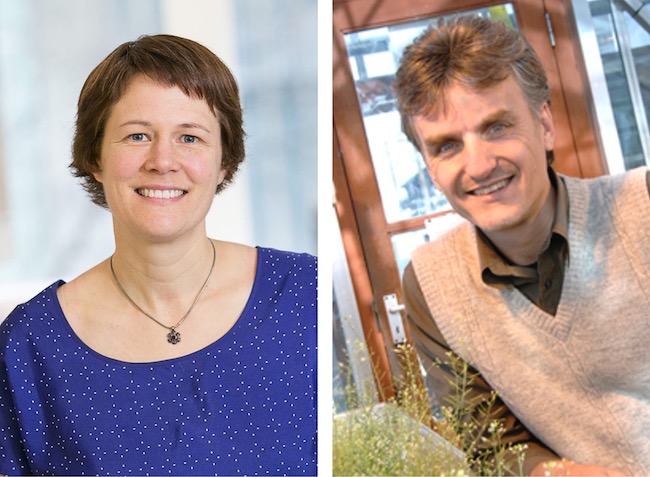
Dr Lynette Brownfield's research into how plants make pollen received a boost last week – a prestigious Marsden Fund grant.
In her newly-funded project, Lynette has set her sights high. She intends to find out what is the exact molecular signal that decides whether a plant cell becomes just another ordinary cell, or starts to develop into sperm cells.
“I've always been fascinated by how cells know how to become the right kind of cell,” she says.
Pollen contains the cells that develop into sperm cells - the male gamete cells essential for plants to reproduce sexually.
Sex in plants is quite different from the more familiar ways that other organisms have sex, but they do have one thing in common - they make a female gamete cell (an ovule in plants), and a male gamete cell, and these cells must come together for fertilisation and to make a new plant.
Revealing the key details of how plants make sperm cells will not only help us understand more about the mysterious world of plant reproduction, but will also create new opportunities to enhance plant breeding and control the spread of genetically modified and pest plants.
Lynette will work closely on the project with Professor David Twell of the University of Leicester, UK, one of the world's leading experts in pollen biology. Lynette spent three years as a postdoctoral research fellow in his laboratory, and now collaborates with him on projects that aim to understand the molecular events associated with sexual reproduction in plants.
The prestigious Marsden Fund provides grants for research projects that generate new knowledge with long-term benefit to New Zealand and explore new ideas not supported by other funding schemes. This means that it supports science that is less on the 'applied' end of the research spectrum, and more at the 'blue skies' end, allowing for researchers to stretch their imaginations.
Lynette's project will receive $958,000 over three years.
Image above: Dr Lynette Brownfield (left) and Professor David Twell.